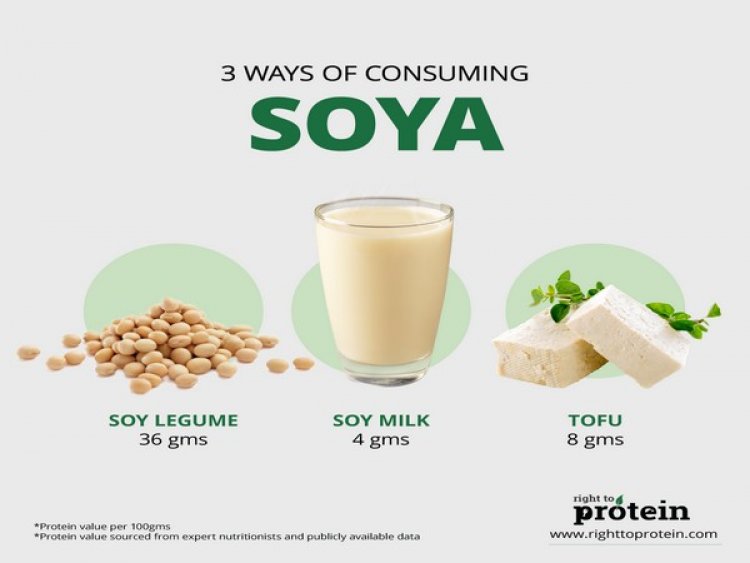The role of soy protein for better immunity

New Delhi: When pinned down by a flu, people often turn towards health and nutrition to get better. For over a year now India and the entire world has been battling with the novel coronavirus. It's taken a global pandemic crisis for people on this planet to shift their focus almost entirely towards efficient health management. After being blind-sided by COVID-19, the last twelve months have been nothing but a ride - right from national lockdowns, crumbling economy, loss of life, to hope, with the development of the vaccinations and implementation of nationwide vaccination drive, and to finally live in a mask-free and safe environment.
'Protein' and 'immunity' quickly emerged as buzzwords only to further be actioned for better health management at a crucial time to begin this battle against the pandemic. Protein's role in developing immunity is not a secret. Amino acids that make protein are responsible for developing immunity. To understand this better, it is important why people should consume protein-rich foods to build immunity. Both animal and plant protein are made up of 20 amino acids , the same amino acids that are responsible in building immunity. However, the most essential ones for humans, nine to be specific, are not produced by the body like others. Therefore they have to be consumed through dietary means. Foods that contain all essential amino acids are complete proteins such as poultry, fish, eggs, beef, pork, etc. - all sources of animal protein.
Now, India's dietary patterns vary based on geography, culture, and traditions. Although most Indians are non-vegetarians, it is known that more men consume non-vegetarians foods than women. Almost 3 in every 10 women do not consume complete proteins like eggs and meat. The same observation was found among men wherein 2 in every 10 men do not consume complete proteins such as meat and fish. In such cases nutritionists recommend balancing meals with fruits and vegetable to get optimum nutrition from all sources possible. However, all other nutritious foods may not guarantee adequate protein intake. So how do vegetarians and other groups who choose not to consumer complete proteins manage their protein intake? You don't need to be a non-vegetarian to exercise your 'Right To Protein'.
Protein quality is based upon amino acid content and although it is true that plant based protein sources are low in them compared to animal sources, that's not the whole truth. For the majority population that cannot receive their complete protein from non-vegetarian sources, there is one option that is emerging as a superfood - soy.
Soy, is the only plant based source of protein which contains all nine amino acids, making all soy based foods comparable to animal protein. Vegetarians can include soy in their daily diets through nutritious products such as soybeans soy chaap, soy chunks, soy milk, soy nuts, etc. At the same time non-vegetarians can also enjoy soy foods as they are or as alternative protein options to animal proteins. Several organisations have managed to innovate by creating mock meat food options using soy to recreate the experience of meat and meat products - most of these have been gaining popularity all over the world, especially in India. And that's not all. There are several more food options made out of soy such as Tofu - which is news to many people.
Tempeh a Japanese soy product, rapidly gaining popularity in India is prepared with fermented soybeans. Soy protein is a rich source of quality protein. The goodness of proteins in soybeans further helps growth, repairs tissue, builds muscle and renews cells. Balancing soy foods with fruits, vegetables, fish, and meats, would be a full-proof plan of increasing protein, thereby by receiving all essential amino acids and to finally boost immunity. It is more important now than ever to consider the role of protein in constantly strengthening immunity. A well-balanced diet, an effective health management routine will help kick-start a new regimen of health in the lives of the citizens, and soy protein must be right in the center of it.















































